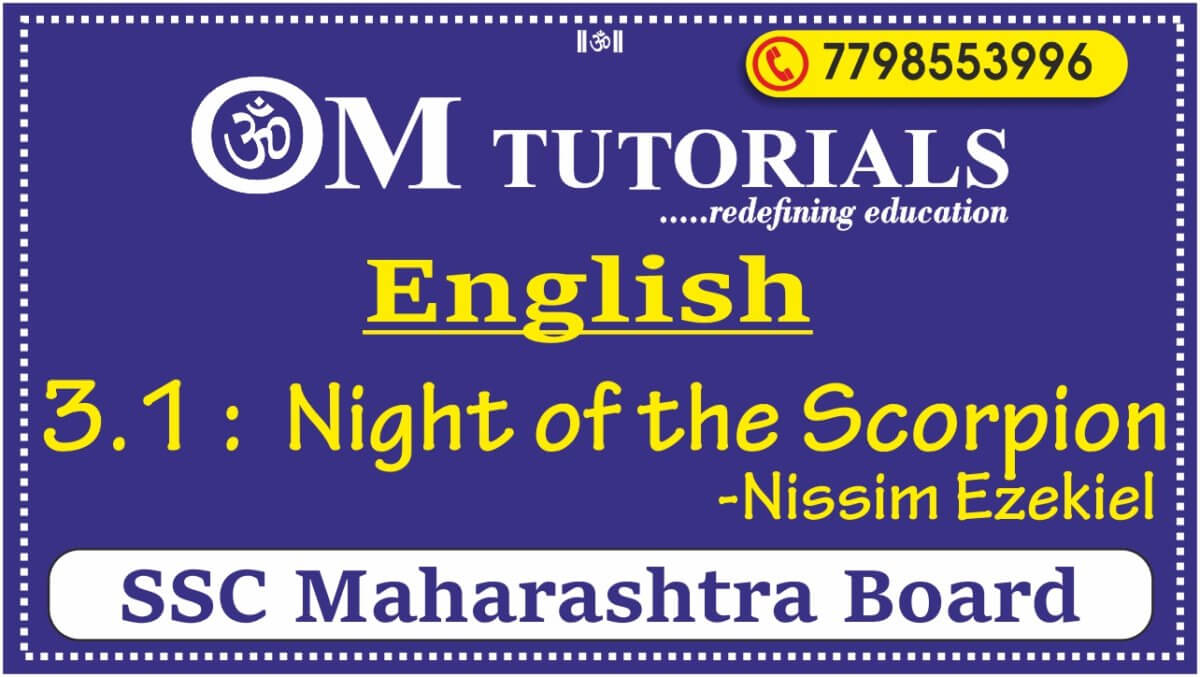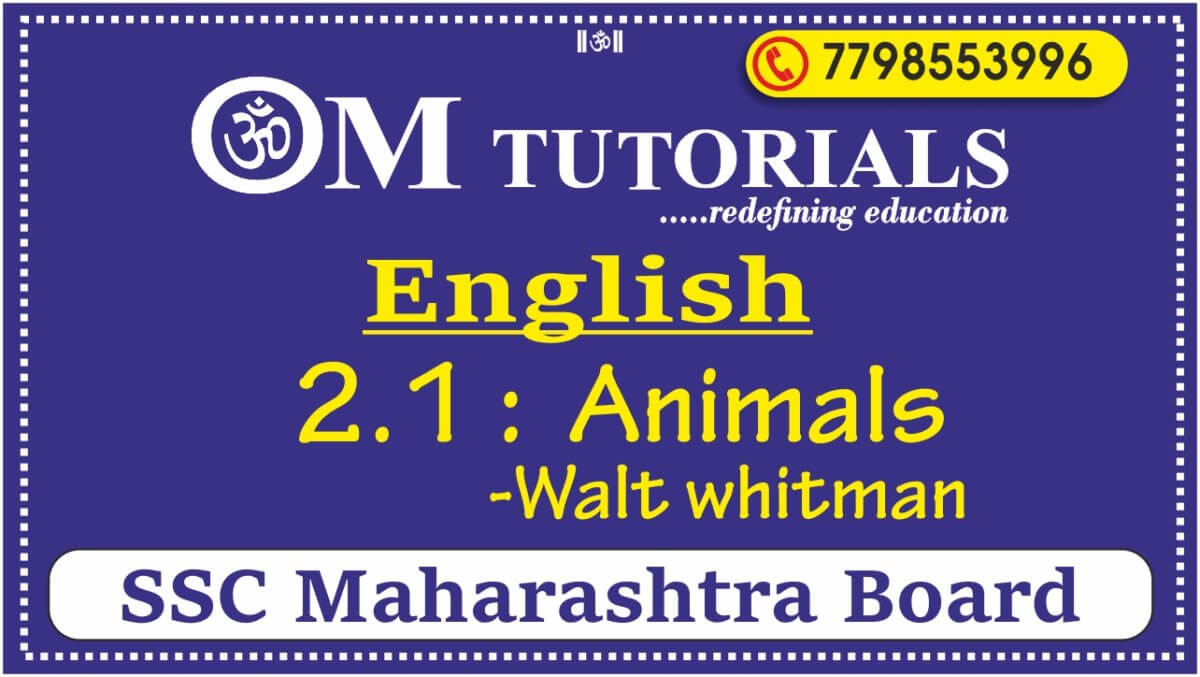Q. 1 B1 Do as directed/ Transformation of the sentences. (4)
Choose the correct alternative to transform the sentence into a Simple Sentence.
- I know that he has stolen the necklace.
a. I know he stole the necklace.
b. I know him to have stolen the necklace.
c. I know him to be a thief of the necklace.
d. I know him as he stole the necklace.
Ans : a. I know he stole the necklace. - The sword that is made of pure steel is brought from India.
a. The pure steel sword is brought from India.
b. The steel sword is pure and brought from India.
c. The sword from India is pure steel.
d. The pure sword from India is steel.
Ans : a. The pure steel sword is brought from India. - They took shelter under a building because they were tired by walking.
a. They took shelter under a building as they were tired by walking.
b. Taking shelter under a building, they were tired by walking.
c. Tired by walking, they took shelter under a building.
d. They were tired and took shelter under a building.
Ans : c. Tired by walking, they took shelter under a building. - Not only did his teachers gave him enough practice, but his parents too.
a. His parents with his teachers gave him enough practice.
b. His teachers and the parents gave him enough practice.
c. Besides his teachers giving him enough practice, his parents gave practice also.
d. Besides his teachers giving him enough practice, his parents did the same.
Ans : d. Besides his teachers giving him enough practice, his parents did the same. - He was a mere student but he offered to solve the problem.
a. He was a mere student who offered to solve the problem.
b. In spite of being a mere student, he offers to solve the problem.
c. In spite of a mere student, he has offered to solve the problem.
d. In spite of his being a mere student, he offered to solve the problem.
Ans : d. In spite of his being a mere student, he offered to solve the problem. - He must not be absent or he will be declared fail. / In the event of his
being late, he will be punished.
a. He will be declared fail when he is absent.
b. In the event of his being absent, he will be failed.
c. In the event of his being absent, he will be declared fail.
d. In the event of being declared fail, he will be absent.
Ans : c. In the event of his being absent, he will be declared fail.
Choose the correct alternative to transform the sentence into a Compound Sentence. - Satish must work very hard to rescue his brother.
a. Satish must work very hard so as to rescue his brother.
b. Satish must work hard as well to rescue his brother.
c. Satish must rescue his brother and work very hard.
d. Satish must work very hard and rescue his brother.
Ans : d. Satish must work very hard and rescue his brother. - The witness said that Mohan was guilty. / He declared his innocence.
a. The witness told that Mohan was guilty.
b. Mohan was guilty told the witness.
c. The witness confirmed Mohan’s guilt.
d. The witness found Mohan guilty.
Ans : a. The witness told that Mohan was guilty. - The citizens who have paid the taxes are always respected.
a. Tax paying citizens are always respected.
b. The citizens paid the taxes and get respect.
c. The citizens paid the taxes for respect.
d. The citizens pay the taxes and are always respected.
Ans : d. The citizens pay the taxes and are always respected. - The interviewer was annoyed that he had not answered his queries.
a. The interviewer was annoyed as he had not answered his queries.
b. The interviewer was annoyed at his not answering his queries.
c. The queries were not answered and the interviewer was annoyed.
d. The interviewer was annoyed at answering his queries.
Ans : c. The queries were not answered and the interviewer was annoyed. - I was surprised when I heard him reveal the secret. / I was surprised to
hear him talk so.
a. I was surprised to hear him reveal the secret.
b. I was surprised for his revealing of the secret.
c. I was surprised to hear his revealing the secret.
d. I was surprised to hear his reveal the secret.
Ans : a. I was surprised to hear him reveal the secret.
Choose the correct alternative to transform the sentence into a Complex Sentence. - Search his room and you will find the clue.
a. If you searched his room, you would find the clue.
b. If you search his room, you found the clue.
c. If you search his room, you will find the clue.
d. If you searched his room, you will have found the clue.
Ans : c. If you search his room, you will find the clue. - The luggage was not misplaced but it was kept deliberately.
a. The luggage was not misplace but kept deliberately.
b. The luggage was not misplaced although it was kept deliberately.
c. The luggage was kept deliberately although it was not misplaced.
d. The luggage was kept deliberately to misplace it.
Ans : c. The luggage was kept deliberately although it was not misplaced.
Choose correct alternative to Frame a wh question to get the underlined answer. - Some thugs tried to snatch her gold chain.
a. What some thugs tried to snatch?
b. What did some thugs tried to snatch?
c. What some thugs snatch?
d. What did some thugs try to snatch?
Ans : d. What did some thugs try to snatch? - Arunima was retrained as a mountaineer.
a. What was Arunima retrained as?
b. What was Arunima retrained?
c. What did Arunima retrain?
d. What was retrained Arunima?
Ans : a. What was Arunima retrained as? - An exceptional battle had begun inside the train on the move?
a. Where had an exceptional battle begun on the move?
b. When had an exceptional battle on the move begun?
c. Where had an exceptional battle begin on the move?
d. Where an exceptional battle had begun on the move?
Ans : a. Where had an exceptional battle begun on the move? - With the help of the technology, I started responding the treatment.
a. How I started responding the treatment?
b. How did I started responding the treatment?
c. How I start responding the treatment?
d. How did I start responding the treatment?
Ans : d. How did I start responding the treatment? - Ishita invites my family members on my birthday for celebration.
a. When Ishita invited my family members for celebration?
b. When Ishita invite my family members for celebration?
c. When do Ishita invite my family members for celebration?
d. When does Ishita invite my family members for celebration?
Ans : d. When does Ishita invite my family members for celebration?
Choose correct alternative to make the given sentence Exclamatory. - You performed the very energetically in front of the visitors.
a. How energetically in front of the visitors you perform!
b. How energetical in front of the visitors you performs!
c. How energetically in front of the visitors you performed!
d. How energetically you perform in front of the visitors!
Ans : c. How energetically in front of the visitors you performed! - You have narrated a very romantic book.
a. What have you narrated a very romantic book!
b. What book you have narrated a very romantic!
c. What a romantic book you have narrated!
d. What a romantic book you have narrate!
Ans : c. What a romantic book you have narrated!
Choose the correct alternative to make the given sentence Negative. - Sunita is the most loyal employee of our firm.
a. Sunita is not the most disloyal employee of our firm.
b. Sunita is the most not disloyal employee of our firm.
c. No other employee of our firm is as loyal as Sunita.
d. No other employee of our firm is the most loyal as Sunita.
Ans : c. No other employee of our firm is as loyal as Sunita. - As soon as he entered the room, he noticed the unusual presence.
a. As soon as he entered the room, he did not miss the unusual presence.
b. As soon as he entered the room, he unnoticed the unusual presence.
c. No sooner did he entered the room than he noticed the unusual presence.
d. No sooner did he enter the room than he noticed the unusual presence.
Ans : d. No sooner did he enter the room than he noticed the unusual presence.
Q. 1 B2 Spot the error and rewrite the correct sentences. - The number of people do not matter.
Ans : The number of people does not matter. - I am liking to see movies at the theatre.
Ans: I like to see movies at the theatre. - I never forgets the given responsibility.
Ans : I never forget the given responsibility - He has often ask me to think before I speak.
Ans : He has often asked me to think before I speak. - No sooner did I challenged the man than he accepted it.
Ans : No sooner did I challenge the man than he accepted it. - We are the more strongest community in the world.
Ans : We are the most strongest community in the world. - I entered the room for search the documents.
Ans : I entered the room for searching the documents. - We can plant the trees in order saving the earth.
Ans : We can plant the trees in order to save the earth. - I usually asks my employees to be punctual in their tasks.
Ans : I usually ask my employees to be punctual in their tasks. - The training came to an end before you left the city.
Ans : The training has come to an end before you left the city. - If you challenge me, I had accept it.
Ans : If you challenge me, I will accept it. - The manager was looking into the missing file.
Ans : The manager was looking for the missing file. - She is more taller than all her brothers in the family.
Ans : She is taller than all her brothers in the family. - He said he did not wanted to go to bazaar yesterday.
Ans : He said he did not want to go to bazaar yesterday. - Mango is the bestest among all the Indian fruits.
Ans : Mango is the best among all the Indian fruits.




